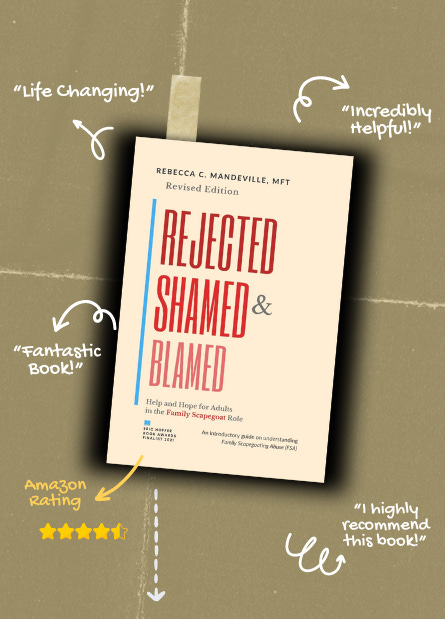FSA Survivor Resources
"Rebecca C. Mandeville's pioneering research on the systemic phenomenon she named Family Scapegoating Abuse (FSA) marks the establishment of a new - and critically important - area of study within the field of Family Systems. At last, survivors of this devastating phenomenon have names and terms to describe what happened to them in their family and a means of moving forward in their healing and recovery process."
- Joshua Mitchell, PhD, LMHC
Adult survivors of Family Scapegoating Abuse (FSA) often feel isolated, desperate, hopeless, and invalidated. The below resources have been helpful to clients in my private practice and my social media followers, and I've now updated the list for 2024:
Read My Book on introductory book on Family Scapegoating Abuse (FSA), Rejected, Shamed, and Blamed: I've been privileged to receive hundreds of messages and comments from people all around the world who kindly let me know how much my introductory research-based book on what I named 'Family Scapegoatin…



